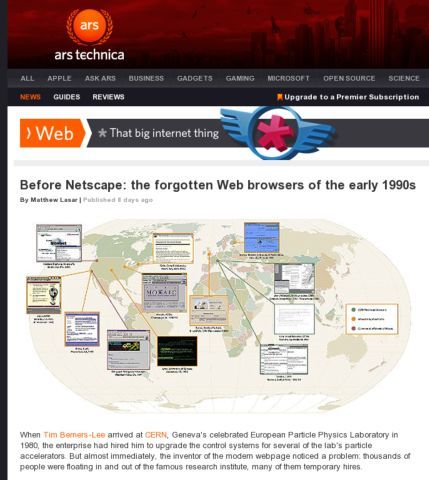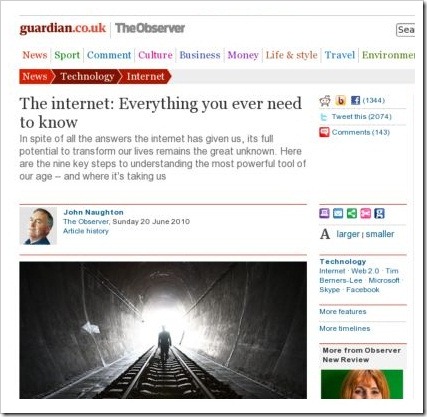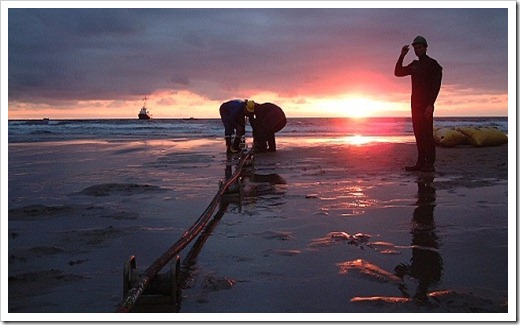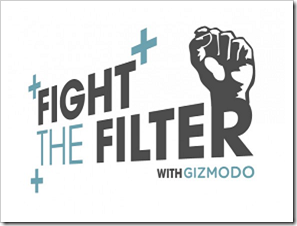In Before Netscape: the forgotten Web browsers of the early 1990s [^] Matthew Lasar at ArsTechnica takes us back to that time to those early days and shows us how far we have come in the 18 years since Netscape’s Mosaic launched.
Before Internet Explorer, even before Netscape, there was a whole ecosystem of different browsers that were evolving. This was back in the early 1990s when the concept of the publicly accessible internet, the information superhighway, was just beginning to catching on.
Pundits were still trying to tell us that this new thing was just a passing fad and it would never catch-on, it was just too complicated. But new browsers seemed were springing up all over the place. Some of them were even able to show in-line image, rather than having to open them in new windows, then came sound and video.




The President Calls for Help
Apparently Barak Obama, the President of the USA, has asked the Tech World for help. The President has asked for the “best ideas about how to clamp down on rogue Web sites and other criminals who make money off the creative efforts of American artists and rights holders.” This comes after the dramatic backdown by the supporters of the SOPA and PIPA [^] – proposed legislation to restrict the freedom and openness of the internet.
As Nat Torkington points out perhaps the problem isn’t one of fighting the challenges to intellectual property rights [^]. It’s a case of rights-holders – large film studios, record labels, and publishers – failing to adapt to a changing technological world. Every other industry has had to move with the times – why not publishers? It’s time to stop praying for a sign and start living in the here and now.
Your customers are demanding changing, they want electronic copies of your goods and for the most part they are willing to pay for them. As Jonathan Coulton says “Make good stuff, then make it easy for people to buy it [^]” should be your anti-piracy plan. Sure there will always be pirates, but they will be there no matter how hard you make if for them; some just enjoy the challenge!